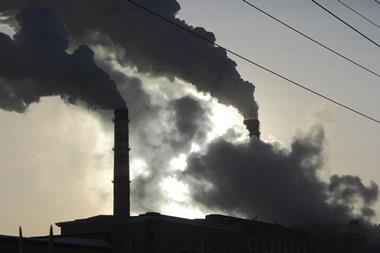Health appeal and added value formats have potential to create a bigger player
British trout production has the potential to reach 25,000 tonnes and start to achieve greater popularity in supermarkets as an alternative to its big aquaculture brother salmon.
Tonnage currently stands at around 18,000 tonnes compared to some 15,500 tonnes a decade ago.
But Nick Read, head of legislation for the British Trout Association, and a director of Alderley Trout in Gloucestershire, said he was optimistic for further growth because the existing trout farms in Britain have the technology in place to increase tonnage.
As for the environmental critics of salmon farms, Read said: "All aquaculture can defend itself very well in the the manner that it uses resources. And I think that in the long run the problems being encountered in Scotland will be resolved.
"In trout we have learnt very well how to reduce stress levels in fish through good husbandry."
The industry, though small, has in place mechanics of the heavier weight proteins, with Quality Trout UK providing quality assurance and the British Trout Association dealing with technical, legislative and promotional activity, such as National Trout Week.
The industry is driving forward with added value developments as it tackles the aversion of consumers to trout bones, notably with fillet packs.
Most trout is still sold as whole fish, so the potential is there for the development of more prepacks and added value products. "The future is in the filleted products," said Read. "They overcome the bone problem completely."
The fish also has health appeal, not just with Omega-3. Trout has a lower oil and calorie content than salmon which makes it appealing to weight watchers, said Read.
Organic trout is also being developed under the Soil Association and Organic Farmers and Growers standards and supermarkets are keen to display it, added Read.
{{MEAT }}
British trout production has the potential to reach 25,000 tonnes and start to achieve greater popularity in supermarkets as an alternative to its big aquaculture brother salmon.
Tonnage currently stands at around 18,000 tonnes compared to some 15,500 tonnes a decade ago.
But Nick Read, head of legislation for the British Trout Association, and a director of Alderley Trout in Gloucestershire, said he was optimistic for further growth because the existing trout farms in Britain have the technology in place to increase tonnage.
As for the environmental critics of salmon farms, Read said: "All aquaculture can defend itself very well in the the manner that it uses resources. And I think that in the long run the problems being encountered in Scotland will be resolved.
"In trout we have learnt very well how to reduce stress levels in fish through good husbandry."
The industry, though small, has in place mechanics of the heavier weight proteins, with Quality Trout UK providing quality assurance and the British Trout Association dealing with technical, legislative and promotional activity, such as National Trout Week.
The industry is driving forward with added value developments as it tackles the aversion of consumers to trout bones, notably with fillet packs.
Most trout is still sold as whole fish, so the potential is there for the development of more prepacks and added value products. "The future is in the filleted products," said Read. "They overcome the bone problem completely."
The fish also has health appeal, not just with Omega-3. Trout has a lower oil and calorie content than salmon which makes it appealing to weight watchers, said Read.
Organic trout is also being developed under the Soil Association and Organic Farmers and Growers standards and supermarkets are keen to display it, added Read.
{{MEAT }}















No comments yet